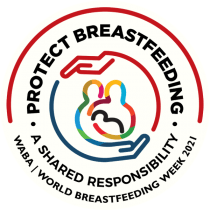It can be really reassuring for families to have a bit of stored colostrum so that their baby can have it as their first feed after birth, if there are any problems getting baby to latch straight away.
What is antenatal colostrum harvesting?


It can be really reassuring for families to have a bit of stored colostrum so that their baby can have it as their first feed after birth, if there are any problems getting baby to latch straight away.

This is a basic troubleshooting process that a peer supporter or IBCLC will go through with you, if you’re having a feeding assessment.

IBCLC Charlotte Treitl shares her top tips for supporting optimal position and attachment in the breastfed baby.

Babies are really clever, they know how to tell us when they’re hungry from birth. Have you ever seen the newborn breastcrawl? (You can see an amazing example of this here. Babies don’t necessarily cry as soon as they are hungry, in fact, crying is the last feeding cue a baby will exhibit, so we… Continue reading What are feeding cues?

World Breastfeeding Week runs every year from the 1st to the 7th August. This year’s theme for World Breastfeeding Week is Protect Breastfeeding: A Shared Responsibility. ‘A shared responsibility’ means it’s up to all of us – from breastfeeding parents, to peer support groups, IBCLCs, maternity nurses, GPs, health visitors, nurses, paediatricians, midwives, businesses, employers,… Continue reading How to Celebrate World Breastfeeding Week 2021

Here are 5 breastfeeding books recommended by IBCLC & Infant Feeding Specialist Shel Banks and IBCLC & Tongue-tie Specialist Sarah Oakley THE POSITIVE BREASTFEEDING BOOK: EVERYTHING YOU NEED TO FEED YOUR BABY WITH CONFIDENCE BY PROFESSOR AMY BROWN Synopsis – The Positive Breastfeeding Book cuts through the anecdotes, giving you clear, no-judgement, non-preachy, evidence-based information to help you make the right decisions… Continue reading 5 Breastfeeding Books Recommended by IBCLCs

Watch this video with Infant Feeding Specialist & Lactation Consultant Shel Banks who shares insights into the risks associated with overfeeding babies.

What we do know is that the time change can have a more significant impact on children who are not well-rested, resulting in crankiness, night waking, short naps and early morning waking.

As childcare specialists we understand that researching and finding the right childcare can be a time consuming and lengthy process.